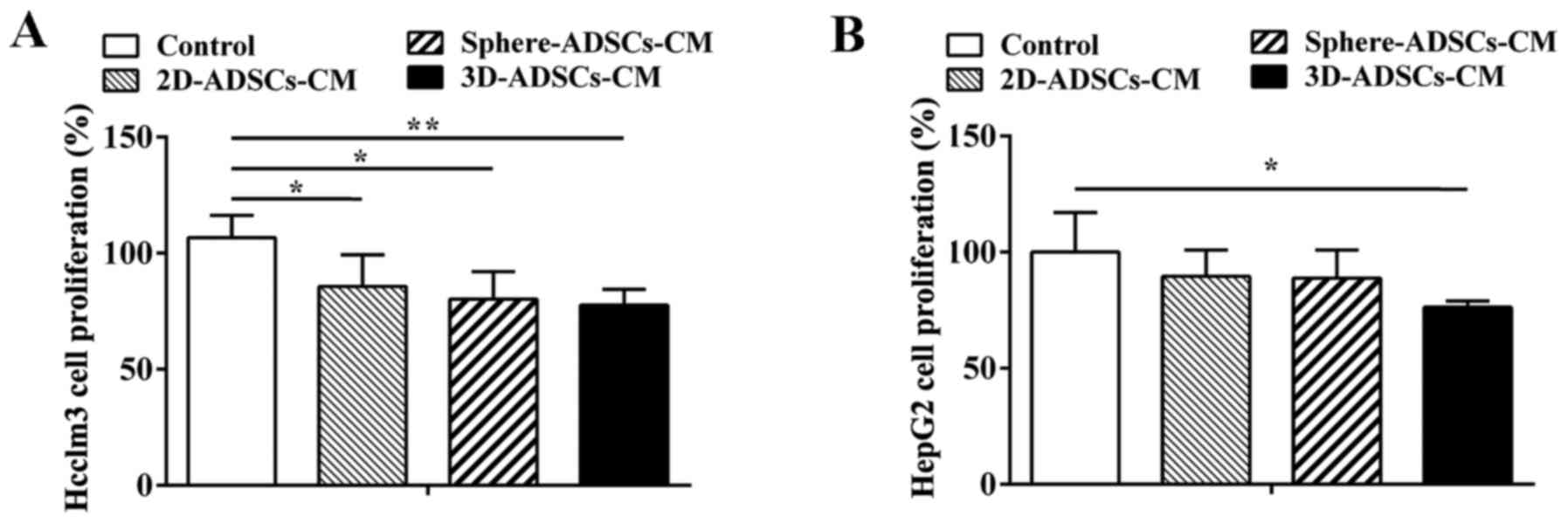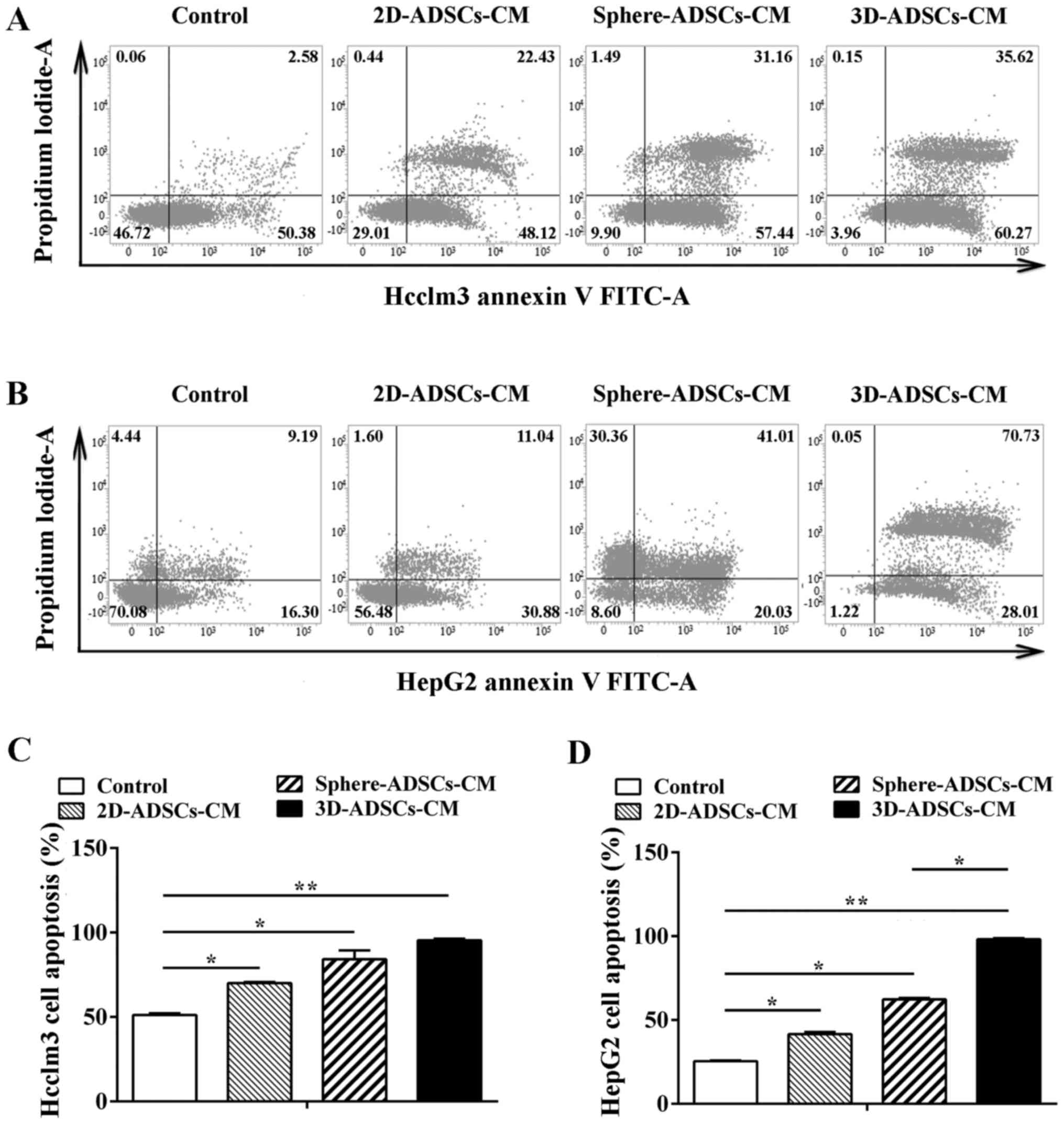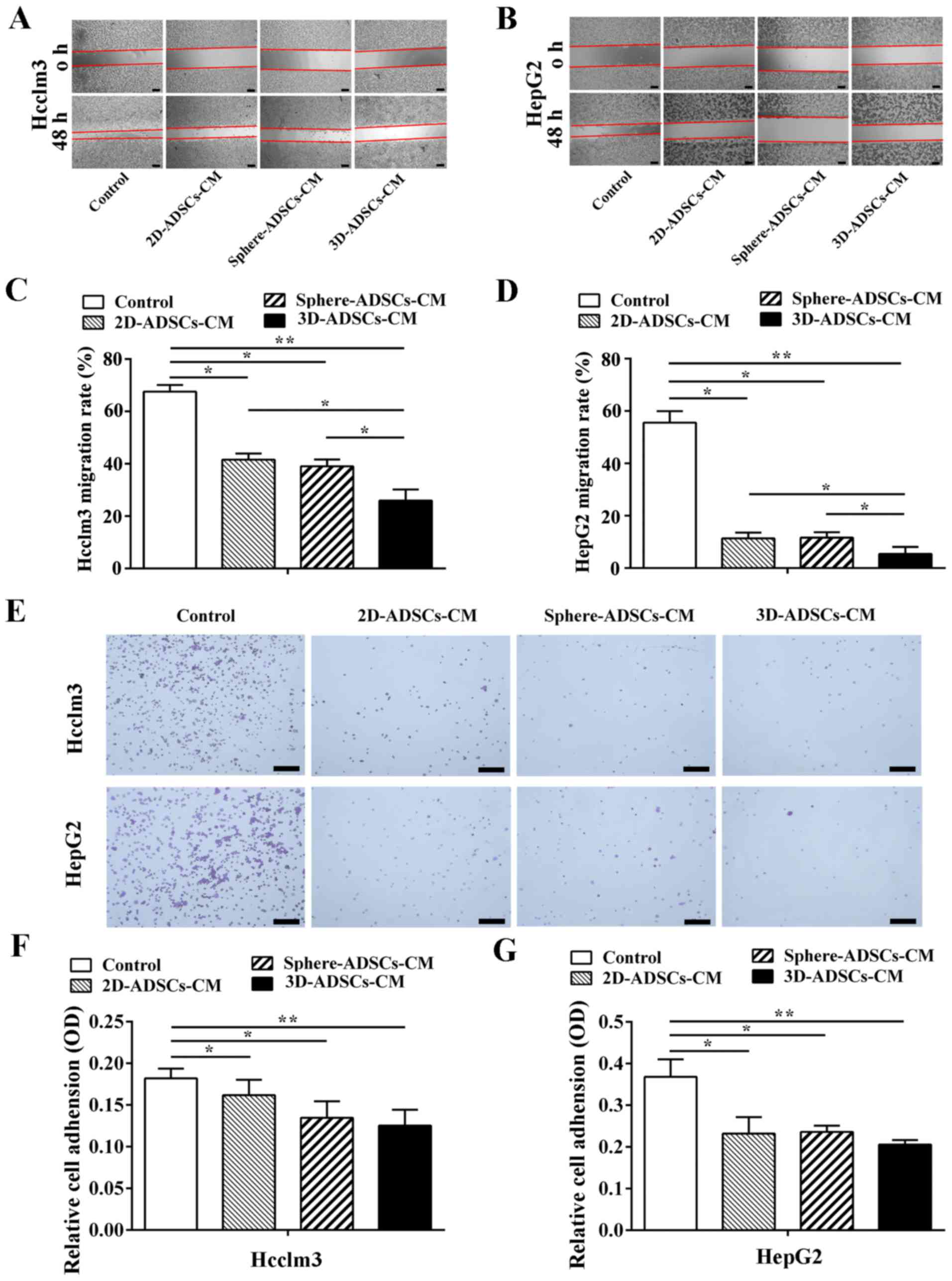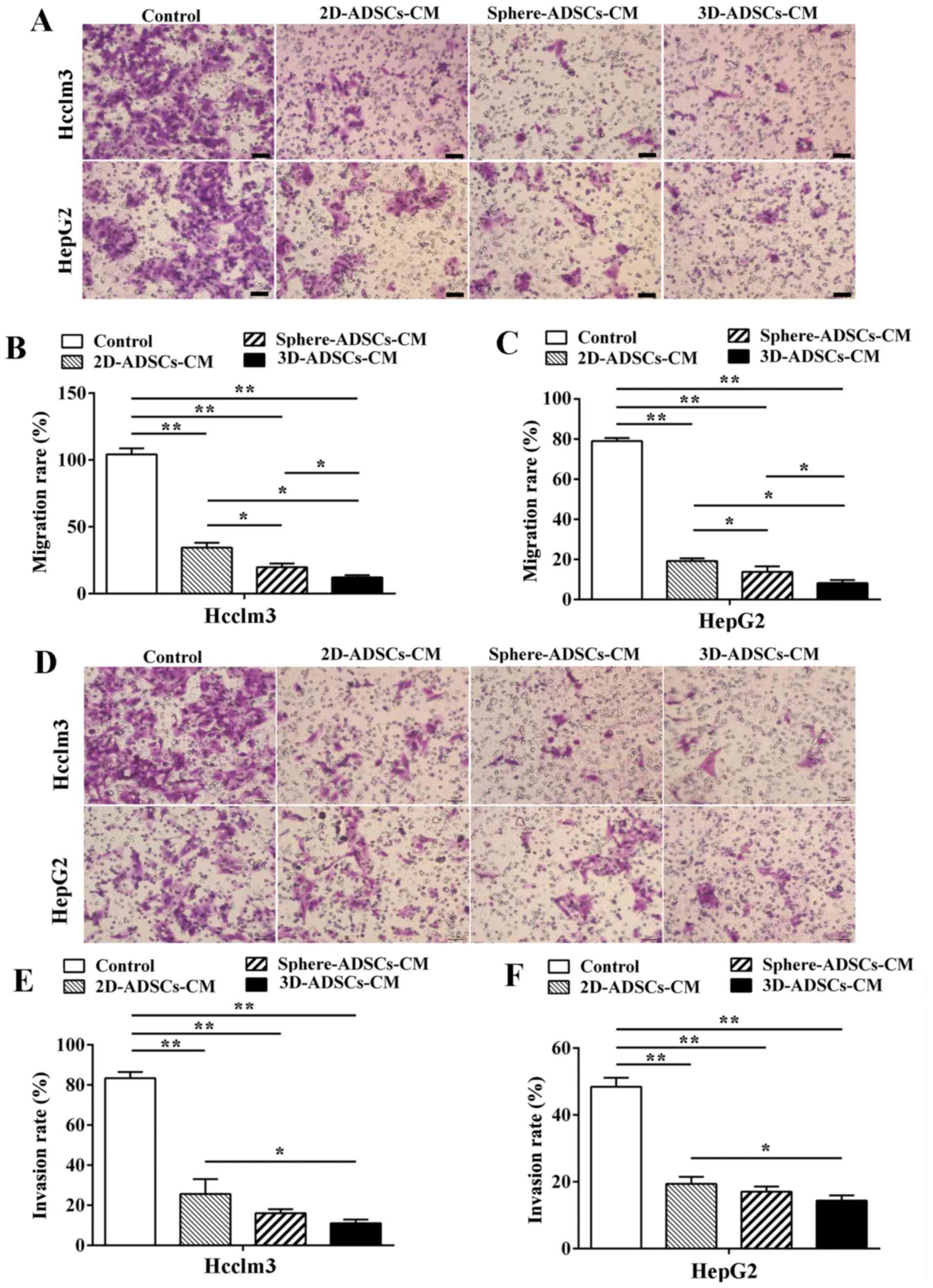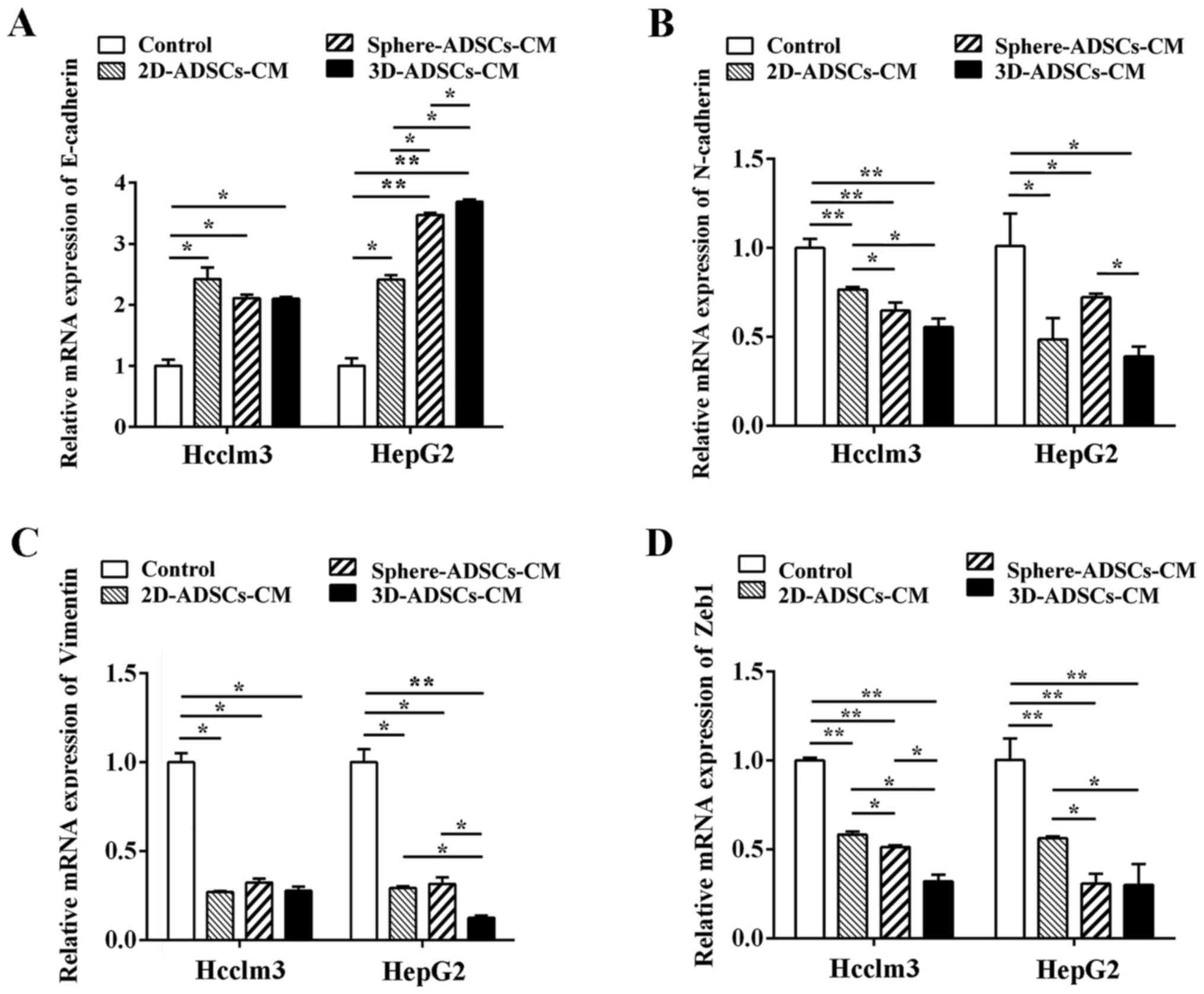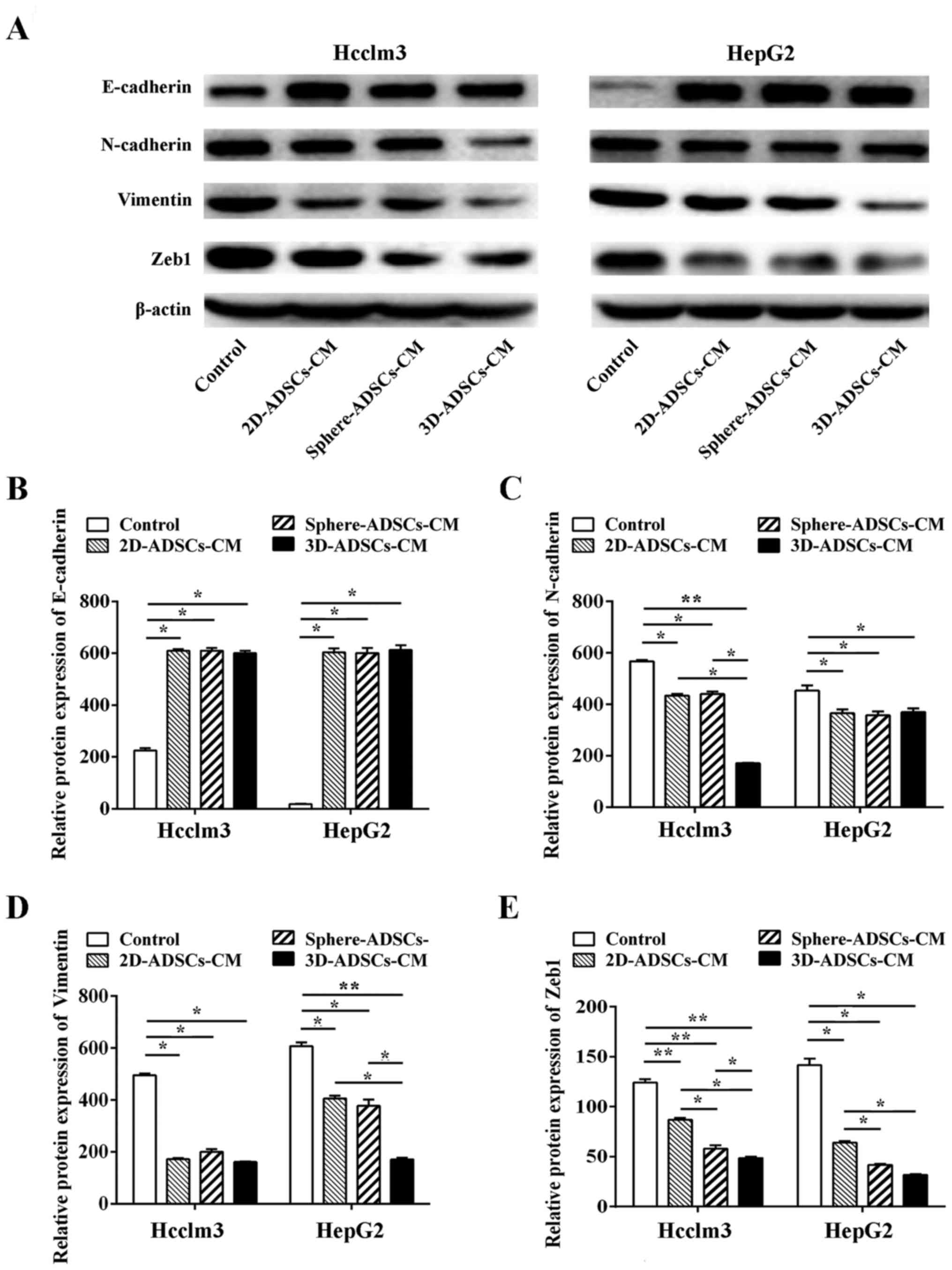|
1
|
Hashemi M and Kalalinia F: Application of
encapsulation technology in stem cell therapy. Life Sci.
143:139–146. 2015. View Article : Google Scholar : PubMed/NCBI
|
|
2
|
Ojeh N, Pastar I, Tomic-Canic M and
Stojadinovic O: Stem cells in skin regeneration, wound healing, and
their clinical applications. Int J Mol Sci. 16:25476–25501. 2015.
View Article : Google Scholar : PubMed/NCBI
|
|
3
|
Daughtry B and Mitalipov S: Concise
review: parthenote stem cells for regenerative medicine: genetic,
epigenetic, and developmental features. Stem Cells Transl Med.
3:290–298. 2014. View Article : Google Scholar : PubMed/NCBI
|
|
4
|
Zhao T, Zhang ZN, Rong Z and Xu Y:
Immunogenicity of induced pluripotent stem cells. Nature.
474:212–215. 2011. View Article : Google Scholar : PubMed/NCBI
|
|
5
|
Panchalingam KM, Jung S, Rosenberg L and
Behie LA: Bioprocessing strategies for the large-scale production
of human mesenchymal stem cells: a review. Stem Cell Res Ther.
6:2252015. View Article : Google Scholar : PubMed/NCBI
|
|
6
|
Serafini M, Dylla SJ, Oki M, Heremans Y,
Tolar J, Jiang Y, Buckley SM, Pelacho B, Burns TC, Frommer S, et
al: Hema topoietic reconstitution by multipotent adult progenitor
cells: precursors to long-term hematopoietic stem cells. J Exp Med.
204:129–139. 2007. View Article : Google Scholar : PubMed/NCBI
|
|
7
|
Al-Nbaheen M, Vishnubalaji R, Ali D,
Bouslimi A, Al-Jassir F, Megges M, Prigione A, Adjaye J, Kassem M
and Aldahmash A: Human stromal (mesenchymal) stem cells from bone
marrow, adipose tissue and skin exhibit differences in molecular
phenotype and differentiation potential. Stem Cell Rev. 9:32–43.
2013. View Article : Google Scholar :
|
|
8
|
Sarugaser R, Lickorish D, Baksh D,
Hosseini MM and Davies JE: Human umbilical cord perivascular
(HUCPV) cells: a source of mesenchymal progenitors. Stem Cells.
23:220–229. 2005. View Article : Google Scholar : PubMed/NCBI
|
|
9
|
Prockop DJ: Marrow stromal cells as stem
cells for nonhematopoietic tissues. Science. 276:71–74. 1997.
View Article : Google Scholar : PubMed/NCBI
|
|
10
|
Pittenger MF, Mackay AM, Beck SC, Jaiswal
RK, Douglas R, Mosca JD, Moorman MA, Simonetti DW, Craig S and
Marshak DR: Multilineage potential of adult human mesenchymal stem
cells. Science. 284:143–147. 1999. View Article : Google Scholar : PubMed/NCBI
|
|
11
|
Salem HK and Thiemermann C: Mesenchymal
stromal cells: current understanding and clinical status. Stem
Cells. 28:585–596. 2010.
|
|
12
|
Cui L, Yin S, Liu W, Li N, Zhang W and Cao
Y: Expanded adipose-derived stem cells suppress mixed lymphocyte
reaction by secretion of prostaglandin E2. Tissue Eng.
13:1185–1195. 2007. View Article : Google Scholar : PubMed/NCBI
|
|
13
|
Ivanova-Todorova E, Bochev I, Mourdjeva M,
Dimitrov R, Bukarev D, Kyurkchiev S, Tivchev P, Altunkova I and
Kyurkchiev DS: Adipose tissue-derived mesenchymal stem cells are
more potent suppressors of dendritic cells differentiation compared
to bone marrow-derived mesenchymal stem cells. Immunol Lett.
126:37–42. 2009. View Article : Google Scholar : PubMed/NCBI
|
|
14
|
Park KJ, Ryoo SB, Kim JS, Kim TI, Baik SH,
Kim HJ, Lee KY, Kim M and Kim WH: Allogeneic adipose-derived stem
cells for the treatment of perianal fistula in Crohn's disease: a
pilot clinical trial. Colorectal Dis. 18:468–476. 2015. View Article : Google Scholar : PubMed/NCBI
|
|
15
|
de la Portilla F, Alba F, García-Olmo D,
Herrerías JM, González FX and Galindo A: Expanded allogeneic
adipose-derived stem cells (eASCs) for the treatment of complex
perianal fistula in Crohn's disease: results from a multicenter
phase I/IIa clinical trial. Int J Colorectal Dis. 28:313–323. 2013.
View Article : Google Scholar
|
|
16
|
Herreros MD, Garcia-Arranz M, Guadalajara
H and De-La-Quintana P: Autologous expanded adipose-derived stem
cells for the treatment of complex cryptoglandular perianal
fistulas: a phase III randomized clinical trial (FATT 1: fistula
Advanced Therapy Trial 1) and long-term evaluation. Dis Colon
Rectum. 55:762–772. 2012. View Article : Google Scholar : PubMed/NCBI
|
|
17
|
Garcia-Olmo D, Herreros D, Pascual I,
Pascual JA, Del-Valle E, Zorrilla J, De-La-Quintana P,
Garcia-Arranz M and Pascual M: Expanded adipose-derived stem cells
for the treatment of complex perianal fistula: a phase II clinical
trial. Dis Colon Rectum. 52:79–86. 2009. View Article : Google Scholar : PubMed/NCBI
|
|
18
|
García-Olmo D, García-Arranz M, Herreros
D, Pascual I, Peiro C and Rodríguez-Montes JA: A phase I clinical
trial of the treatment of Crohn's fistula by adipose mesenchymal
stem cell transplantation. Dis Colon Rectum. 48:1416–1423. 2005.
View Article : Google Scholar : PubMed/NCBI
|
|
19
|
Mizushima T, Takahashi H, Takeyama H,
Naito A, Haraguchi N, Uemura M, Nishimura J, Hata T, Takemasa I,
Yamamoto H, et al: A clinical trial of autologous adipose-derived
regenerative cell transplantation for a postoperative
enterocutaneous fistula. Surg Today. 46:835–842. 2016. View Article : Google Scholar
|
|
20
|
Jo CH, Lee YG, Shin WH, Kim H, Chai JW,
Jeong EC, Kim JE, Shim H, Shin JS, Shin IS, et al: Intra-articular
injection of mesenchymal stem cells for the treatment of
osteoarthritis of the knee: a proof-of-concept clinical trial. Stem
Cells. 32:1254–1266. 2014. View Article : Google Scholar : PubMed/NCBI
|
|
21
|
Díez-Tejedor E, Gutiérrez-Fernández M,
Martínez-Sánchez P, Rodríguez-Frutos B, Ruiz-Ares G, Lara ML and
Gimeno BF: Reparative therapy for acute ischemic stroke with
allogeneic mesenchymal stem cells from adipose tissue: a safety
assessment: a phase II randomized, double-blind,
placebo-controlled, single-center, pilot clinical trial. J Stroke
Cerebrovasc Dis. 23:2694–2700. 2014. View Article : Google Scholar : PubMed/NCBI
|
|
22
|
Tzouvelekis A, Paspaliaris V, Koliakos G,
Ntolios P, Bouros E, Oikonomou A, Zissimopoulos A, Boussios N,
Dardzinski B, Gritzalis D, et al: A prospective, non-randomized, no
placebo-controlled, phase Ib clinical trial to study the safety of
the adipose derived stromal cells-stromal vascular fraction in
idiopathic pulmonary fibrosis. J Transl Med. 11:1712013. View Article : Google Scholar : PubMed/NCBI
|
|
23
|
Wang B, Ma X, Zhao L, Zhou X, Ma Y, Sun H,
Yang Y and Chen B: Injection of basic fibroblast growth factor
together with adipose-derived stem cell transplantation: improved
cardiac remodeling and function in myocardial infarction. Clin Exp
Med. 16:539–550. 2015. View Article : Google Scholar : PubMed/NCBI
|
|
24
|
Seki A, Sakai Y, Komura T, Nasti A,
Yoshida K, Higashimoto M, Honda M, Usui S, Takamura M, Takamura T,
et al: Adipose tissue-derived stem cells as a regenerative therapy
for a mouse steatohepatitis-induced cirrhosis model. Hepatology.
58:1133–1142. 2013. View Article : Google Scholar : PubMed/NCBI
|
|
25
|
You D, Jang MJ, Kim BH, Song G, Lee C, Suh
N, Jeong IG, Ahn TY and Kim CS: Comparative study of autologous
stromal vascular fraction and adipose-derived stem cells for
erectile function recovery in a rat model of cavernous nerve
injury. Stem Cells Transl Med. 4:351–358. 2015. View Article : Google Scholar : PubMed/NCBI
|
|
26
|
Chu Y, Tang H, Guo Y, Guo J, Huang B, Fang
F, Cai J and Wang Z: Adipose-derived mesenchymal stem cells promote
cell proliferation and invasion of epithelial ovarian cancer. Exp
Cell Res. 337:16–27. 2015. View Article : Google Scholar : PubMed/NCBI
|
|
27
|
Muehlberg FL, Song YH, Krohn A, Pinilla
SP, Droll LH, Leng X, Seidensticker M, Ricke J, Altman AM,
Devarajan E, et al: Tissue-resident stem cells promote breast
cancer growth and metastasis. Carcinogenesis. 30:589–597. 2009.
View Article : Google Scholar : PubMed/NCBI
|
|
28
|
Yu X, Su B, Ge P, Wang Z, Li S, Huang B,
Gong Y and Lin J: Human adipose derived stem cells induced cell
apoptosis and S phase arrest in bladder tumor. Stem Cells Int 2015.
619290:2015. View Article : Google Scholar
|
|
29
|
Sun B, Roh KH, Park JR, Lee SR, Park SB,
Jung JW, Kang SK, Lee YS and Kang KS: Therapeutic potential of
mesenchymal stromal cells in a mouse breast cancer metastasis
model. Cytotherapy. 11:289–298. 2009. View Article : Google Scholar : PubMed/NCBI
|
|
30
|
Rettinger CL, Fourcaudot AB, Hong SJ,
Mustoe TA, Hale RG and Leung KP: In vitro characterization of
scaffold-free three-dimensional mesenchymal stem cell aggregates.
Cell Tissue Res. 358:395–405. 2014. View Article : Google Scholar : PubMed/NCBI
|
|
31
|
Ballotta V, Smits AI, Driessen-Mol A,
Bouten CV and Baaijens FP: Synergistic protein secretion by
mesenchymal stromal cells seeded in 3D scaffolds and circulating
leukocytes in physiological flow. Biomaterials. 35:9100–9113. 2014.
View Article : Google Scholar : PubMed/NCBI
|
|
32
|
Bhang SH, Lee S, Shin JY, Lee TJ, Jang HK
and Kim BS: Efficacious and clinically relevant conditioned medium
of human adipose-derived stem cells for therapeutic angiogenesis.
Mol Ther. 22:862–872. 2014. View Article : Google Scholar : PubMed/NCBI
|
|
33
|
Yang CM, Huang YJ and Hsu SH: Enhanced
autophagy of adipose-derived stem cells grown on chitosan
substrates. Biores Open Access. 4:89–96. 2015. View Article : Google Scholar : PubMed/NCBI
|
|
34
|
Tian LL, Yue W, Zhu F, Li S and Li W:
Human mesenchymal stem cells play a dual role on tumor cell growth
in vitro and in vivo. J Cell Physiol. 226:1860–1867. 2011.
View Article : Google Scholar : PubMed/NCBI
|
|
35
|
Pan F, Liao N, Zheng Y, Wang Y, Gao Y,
Wang S, Jiang Y and Liu X: Intrahepatic transplantation of
adipose-derived stem cells attenuates the progression of
non-alcoholic fatty liver disease in rats. Mol Med Rep.
12:3725–3733. 2015. View Article : Google Scholar : PubMed/NCBI
|
|
36
|
Lopez-Terrada D, Cheung SW, Finegold MJ
and Knowles BB: Hep G2 is a hepatoblastoma-derived cell line. Hum
Pathol. 40:1512–1515. 2009. View Article : Google Scholar : PubMed/NCBI
|
|
37
|
Livak KJ and Schmittgen TD: Analysis of
relative gene expression data using real-time quantitative PCR and
the 2(−Delta Delta C(T)) Method. Methods. 25:402–408. 2001.
View Article : Google Scholar
|
|
38
|
Voulgari A and Pintzas A:
Epithelial-mesenchymal transition in cancer metastasis: mechanisms,
markers and strategies to overcome drug resistance in the clinic.
Biochim Biophys Acta. 1796:75–90. 2009.PubMed/NCBI
|
|
39
|
Tobita M, Tajima S and Mizuno H: Adipose
tissue-derived mesenchymal stem cells and platelet-rich plasma:
stem cell transplantation methods that enhance stemness. Stem Cell
Res Ther. 6:2152015. View Article : Google Scholar : PubMed/NCBI
|
|
40
|
Bura A, Planat-Benard V, Bourin P,
Silvestre JS, Gross F, Grolleau JL, Saint-Lebese B, Peyrafitte JA,
Fleury S, Gadelorge M, et al: Phase I trial: the use of autologous
cultured adipose-derived stroma/stem cells to treat patients with
non-revascularizable critical limb ischemia. Cytotherapy.
16:245–257. 2014. View Article : Google Scholar : PubMed/NCBI
|
|
41
|
Feisst V, Meidinger S and Locke MB: From
bench to bedside: use of human adipose-derived stem cells. Stem
Cells Cloning. 8:149–162. 2015.PubMed/NCBI
|
|
42
|
Srijaya TC, Ramasamy TS and Kasim NH:
Advancing stem cell therapy from bench to bedside: lessons from
drug therapies. J Transl Med. 12:2432014. View Article : Google Scholar : PubMed/NCBI
|
|
43
|
Vériter S, André W, Aouassar N, Poirel HA,
Lafosse A, Docquier PL and Dufrane D: Human adipose-derived
mesenchymal stem cells in cell therapy: safety and feasibility in
different 'Hospital Exemption' clinical applications. PLoS One.
10:e01395662015. View Article : Google Scholar
|
|
44
|
Fodor PB and Paulseth SG: Adipose derived
stromal cell (ADSC) injections for pain management of
osteoarthritis in the human knee joint. Aesthet Surg J. 36:229–236.
2016. View Article : Google Scholar
|
|
45
|
Pak J, Chang JJ, Lee JH and Lee SH: Safety
reporting on implantation of autologous adipose tissue-derived stem
cells with platelet-rich plasma into human articular joints. BMC
Musculoskelet Disord. 14:3372013. View Article : Google Scholar : PubMed/NCBI
|
|
46
|
Ritter A, Friemel A, Fornoff F, Adjan M,
Solbach C, Yuan J and Louwen F: Characterization of adipose-derived
stem cells from subcutaneous and visceral adipose tissues and their
function in breast cancer cells. Oncotarget. 6:34475–34493. 2015.
View Article : Google Scholar : PubMed/NCBI
|
|
47
|
Zhao W, Ren G, Zhang L, Zhang Z, Liu J,
Kuang P, Yin Z and Wang X: Efficacy of mesenchymal stem cells
derived from human adipose tissue in inhibition of hepatocellular
carcinoma cells in vitro. Cancer Biother Radiopharm. 27:606–613.
2012. View Article : Google Scholar : PubMed/NCBI
|
|
48
|
Hou L, Wang X, Zhou Y, Ma H, Wang Z, He J,
Hu H, Guan W and Ma Y: Inhibitory effect and mechanism of
mesenchymal stem cells on liver cancer cells. Tumour Biol.
35:1239–1250. 2014. View Article : Google Scholar
|
|
49
|
Ylostalo JH, Bartosh TJ, Tiblow A and
Prockop DJ: Unique characteristics of human mesenchymal
stromal/progenitor cells pre-activated in 3-dimensional cultures
under different conditions. Cytotherapy. 16:1486–1500. 2014.
View Article : Google Scholar : PubMed/NCBI
|
|
50
|
Cesarz Z and Tamama K: Spheroid culture of
mesenchymal stem cells. Stem Cells Int 2016. 9176357:2016.
View Article : Google Scholar
|
|
51
|
Khodabandeh Z, Vojdani Z, Talaei-Khozani
T, Jaberipour M, Hosseini A and Bahmanpour S: Comparison of the
expression of hepatic genes by human Wharton's jelly mesenchymal
stem cells cultured in 2D and 3D collagen culture systems. Iran J
Med Sci. 41:28–36. 2016.PubMed/NCBI
|
|
52
|
Wakabayashi K, Hamada C, Kanda R, Nakano
T, Io H, Horikoshi S and Tomino Y: Adipose-derived mesenchymal stem
cells transplantation facilitate experimental peritoneal fibrosis
repair by suppressing epithelial-mesenchymal transition. J Nephrol.
27:507–514. 2014. View Article : Google Scholar : PubMed/NCBI
|
|
53
|
Lv N, Gao Y, Guan H, Wu D, Ding S, Teng W
and Shan Z: Inflammatory mediators, tumor necrosis factor-α and
interferon-γ, induce EMT in human PTC cell lines. Oncol Lett.
10:2591–2597. 2015. View Article : Google Scholar : PubMed/NCBI
|















